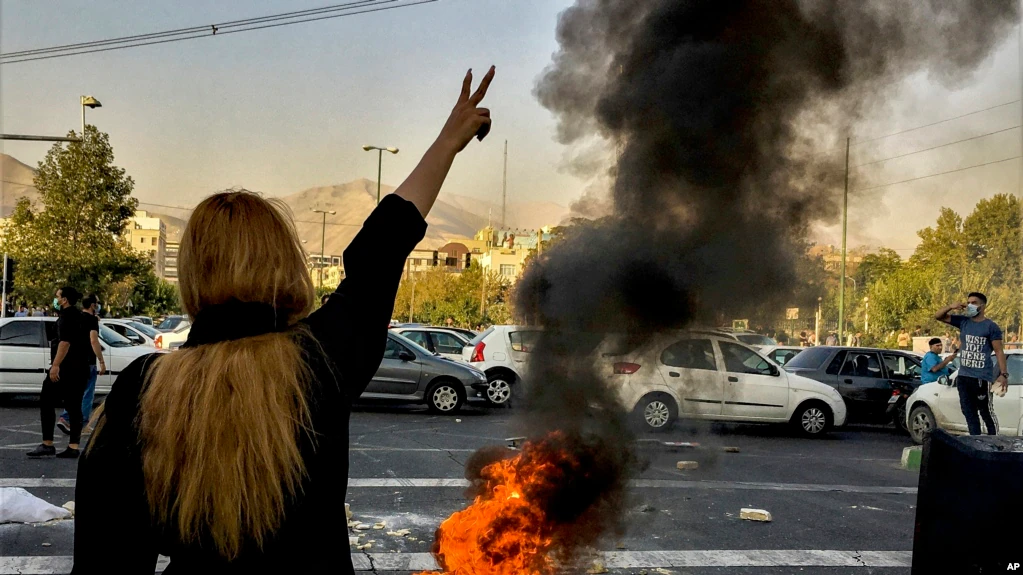« As anti-government protests continue in Iran, Tehran is escalating tensions with its neighbors, accusing them of interfering in its domestic affairs. One of those neighbors, Azerbaijan, has Turkey’s support and is pushing back » says Dorian Jones in Voice of America.
Iran has recently carried out military exercises on Azerbaijan’s border and warned Baku not to incite Iran’s significant Azeri minority.
Iran’s Revolutionary Guard has carried out numerous drone strikes against Kurdish groups based in Iraq’s semi-autonomous Kurdistan region, which it accuses of inciting Iran’s Kurdish minority.
Zaur Gasimov, an expert in the region at Bonn University, said the exercises and attacks are part of a systematic policy by Tehran.
“Iran tries to shift the attention of the Iranian population towards foreign policy, towards conflicts on the border, and towards a polemic with its neighbor countries,” Gasimov said. “The military drills were conducted not only on the border with the Republic of Azerbaijan in the north but also with Iraq and Turkey. So, they are like messages to the region, but they are addressed much more to the local audience.”
But Baku is pushing back against Tehran, carrying out its own military exercises on Iran’s border. Meanwhile, Azerbaijani security forces this month have detained 19 people and accused them of working for Iranian intelligence.
Huseyin Bagci, head of the Ankara-based Foreign Policy Institute, said Baku is emboldened by its support from Turkey, some of which is enshrined in a common defense agreement.
“Turkey and Azerbaijan [are] brothers, friends,” Bagci said. “And they have this Shusha agreement, which is not binding but important. If Azerbaijan is under attack or in danger, Turkey will come unconditionally to the help of Azerbaijan. Iran is trying to extend its influence, but Turkey is like a barrier stopping Iran’s influence in Azerbaijan.”
Turkish military support was vital to Azerbaijan in 2020, when it decisively defeated Armenian-backed forces in a conflict over the disputed Nagorno-Karabakh enclave.
This month, Azerbaijani President Ilham Aliyev condemned Tehran for its military exercises, pledging to defend his country’s secular state and ethnic Azeris both in Azerbaijan and Iran. Analyst Gasimov said Aliyev’s increasingly assertive stance toward Tehran is a significant change for the region.
“The last three decades, Baku was very cautious in its relationship to the very large Azeri-speaking community in northern Iran,” Gasimov said. “But we have seen the conduct of the military drills on the border to Iran as the reaction to the Iranian military drills by the Azeri side. [At] the same time, new discourse in Baku about the Azeri speakers in Iran were two gestures addressed to the Iranian political class, saying that something has changed in the region.”
In a move analysts say will further anger Tehran, Baku opened an embassy in Israel. The two countries already have close military ties, despite Tehran’s warnings. For now, Ankara has refrained from commenting on the turmoil in Iran, but some analysts warn that silence will be tested if Tehran ratchets up tensions with Baku.
Voice of America, November 29, 2022, Dorian Jones

